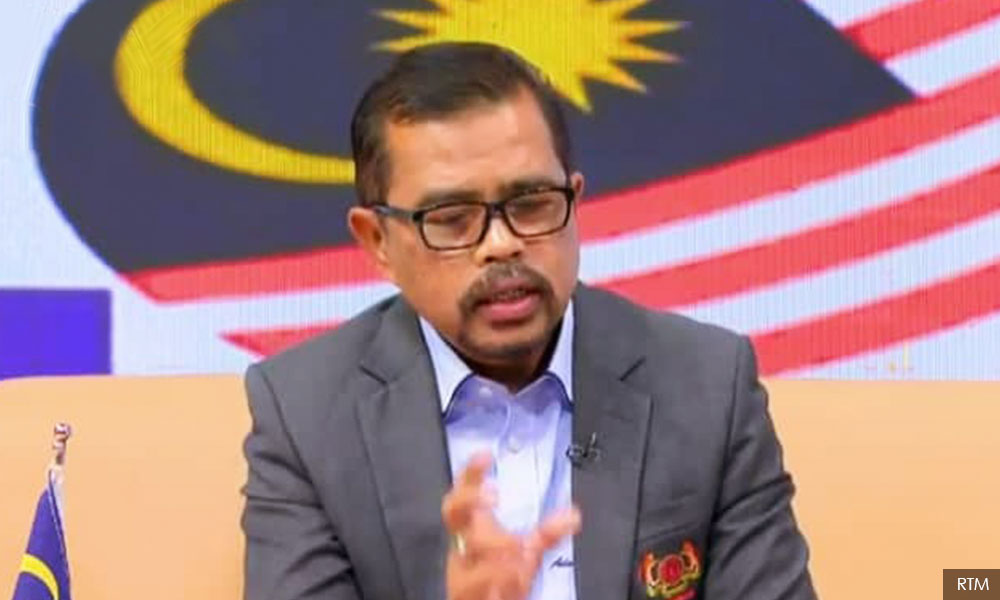Involvement of civil servants in graft tarnishes image - integrity institute
t takes just a few civil servants to be involved in graft and misappropriation to ruin the image of government institutions.
In fact, when news of civil servants being arrested make the headlines, it reinforces the assumption that civil servants are on the take, said Malaysian Institute of Integrity (IIM) Operations Division senior general manager Hamilye Sham Harun.
He said though the number of civil servants involved in corruption cases or government procurement leakages is comparatively small, it could create an impact and the situation could worsen if the menace is not nipped in the bud.
"According to MACC statistics, civil servants made up 46.3 percent of 4,860 persons arrested for graft offences from 2014 to June 2019. This figure when compared to the total number of civil servants does seem rather small.
"However, even if one out of the 1.6 million civil servants commits a graft offence, this should be a cause of concern... what is more worrying is that graft is getting to be more rampant as seen in the news on civil servants from various agencies being detained," he told Bernama.
Hamilye said the impact of corrupt practices in the civil service brings various adverse effects that could not be measured in terms of money as apart from tarnishing the government’s image, it has profound implications for national security.
He gave the example of the release of undocumented immigrants into the country by related agencies.
"From here we are able to see the effects, including social crimes, which could lead to national security issues."
He added that there were three "fragile" sectors that must be focused on, namely matters involving procurement, enforcement and licensing, to ensure that corruption does not become a cancer.
"Heads of departments of each agency such as the ministry’s secretary-general, the chief executive officer and so forth, need to develop an anti-corruption plan, apart from taking immediate action on criminal activities that are happening.
"This culture among civil servants of not wanting to report on any corrupt practices should stop because the informer’s identity will not be revealed, their safety is assured and they will be given an incentive," he said, adding that several ministries, departments and corporate agencies have yet to develop their respective anti-corruption plans.
Don't be afraid to report corruption
Meanwhile, Congress of Unions of Employees in the Public and Civil Services (Cuepacs) president Adnan Mat said civil servants should not be afraid to report corrupt practices at their workplace even though it may involve the head of their respective departments.

In line with the recent call made by Public Service Department director-general Mohd Khairul Adib Abd Rahman who urged civil servants to be a "busy body", Adnan said such attitude could help combat corruption in the civil service.
“Previously, civil servants had faced difficulties in making reports because at times the person involved is our boss and the complainant is considered the guilty party for tarnishing the department’s image.
“Instead, the complainant would later be transferred, assigned other duties not under their job scope or put in 'cold storage' for lodging the report.
"Therefore, the director-general’s call is very much welcome as we want to prevent corruption from becoming rampant in the civil service,” he added.
On the MACC’s concern over corruption among civil servants, he said it has not reached a “totally worrying” state as only 0.15 percent of civil servants were involved.
"Even so, they are still being investigated.
"However, corruption should not be happening at all because civil servants are appointed to serve the country and the public," he said.
Adnan added that there were also civil servants in charge of rule and law enforcement being targeted by individuals wanting to offer bribes, adding that the authorities should take action against these people.

Meanwhile, IIM chief executive officer Nor'afiza Saim said the alarming cases of corruption and abuse of power not only involved civil servants but also those in the private sector including government-linked companies (GLCs) and government subsidiaries.
"This is already at a critical stage and drastic action is needed from board members, top management and department heads as they are accountable and responsible in ensuring that the organisation is well managed and always upholds integrity.
"Culture change is the responsibility of the leader of the organisation as emphasised in the codes, standards, plans and initiatives issued by the government and international bodies, including the National Anti-Corruption Plan, Malaysian Code of Corporate Governance, and Anti-Corruption Management System according to ISO 37001," she said.
Nor'afiza added that full compliance with the existing standards or codes would also help the MACC to receive more complaints on corruption.
“However, the question is, are the organisations ready and committed to implement changes?
"This change is not impossible to achieve and does not require high costs but will certainly prevent leakages," she said.
- Bernama
✍ Credit given to the original owner of this post : ☕ Malaysians Must Know the TRUTH
🌐 Hit This Link To Find Out More On Their Articles...🏄🏻♀️ Enjoy Surfing!




















Post a Comment